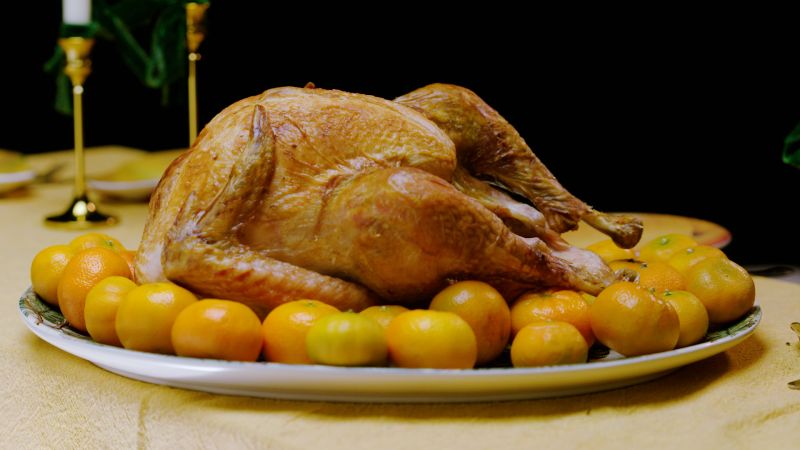
Keep Your Holiday Meals Safe with These Expert Food Safety Tips
When it comes to holiday meals like Thanksgiving, food safety should be at the top of your priority list. With millions of families gathering to share home-cooked meals, it’s crucial to take steps that prevent foodborne illnesses. These illnesses, often caused by pathogens like norovirus, salmonella, and E. coli, can quickly turn your festive feast into an unpleasant memory. But don’t worry—following a few essential practices can help you keep your loved ones safe.
One of the most important rules is the “two-hour rule” : perishable foods shouldn’t sit out at room temperature for more than two hours. For outdoor picnics in hot weather, the limit drops to one hour. Food left out too long falls into the “danger zone” (40°F–140°F), where bacteria can multiply rapidly. Use warming or cooling appliances to keep dishes out of this temperature range until they’re ready to be served. Refrigerate leftovers promptly, as they’ll stay good in the fridge for 3-4 days or can be frozen for up to 4 months.
Also Read:- Tacko Fall Joins NZ Breakers: A Game-Changing Addition?
- Senators Triumph Over Sharks Despite Limited Shots
Defrosting your turkey safely is another key step. Thaw it in the refrigerator, submerged in cold water, or in the microwave—never on the counter. The fridge method is slow but safest, while cold water thawing requires frequent water changes. If using a microwave, be prepared to cook the turkey immediately after thawing. Cooking poultry to an internal temperature of 165°F ensures it’s safe to eat.
Hand hygiene is also essential. Wash your hands thoroughly with soap and water after handling raw meat to avoid spreading bacteria. Alcohol-based hand sanitizers can be a helpful backup, especially when dealing with raw turkey juice. Don’t forget to sanitize kitchen surfaces frequently, especially if raw poultry is involved.
Preventing cross-contamination is equally important. Use separate cutting boards for raw meat and other foods, and avoid reusing utensils or containers that have touched uncooked poultry. If someone in your group feels unwell, they should skip cooking to reduce the risk of spreading germs.
Lastly, check your cookware and utensils. Opt for safe materials like stainless steel, cast iron, or glass over potentially harmful nonstick coatings. Good ventilation in the kitchen is also vital, especially when using gas stoves.
By taking these precautions, you can enjoy a stress-free holiday meal that’s memorable for all the right reasons. Happy feasting!
Read More:

0 Comments